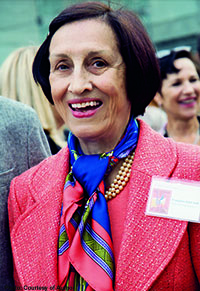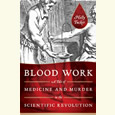A Lively Dialogue Between Friends
Lisa Alther and Françoise Gilot discuss art, sex, war, and other things in About Women: Conversations Between a Writer and a Painter
Let’s just say it right up front: the title of Lisa Alther’s and Françoise Gilot’s About Women: Conversations Between a Writer and a Painter is not exactly a grabber. Prospective readers could be forgiven for suspecting that the book is filled with self-indulgent blather about female creativity or pronouncements on the status of women in the arts. Happily, it contains nothing of that kind. It’s actually a lively dialogue between longtime friends about family, war, sex, fashion, food, and any number of other subjects. The conversation meanders through the history of the twentieth century, exploring the way culture and circumstance shaped the lives and work of two brilliant, unconventional women.
 Lisa Alther grew up in Kingsport, Tennessee, and has since made her home in Vermont and New York City, with stints in London and Paris. She made a huge splash in 1976 with her best-selling debut novel, Kinflicks—Doris Lessing described her as “a strong, salty, original talent”—and she has nine more successful books to her credit, including a memoir, Kinfolks, and Blood Feud: The Hatfields and the McCoys, a history of the Appalachian clan war. Gilot, a Parisian who has lived in the U.S. for many years, is a respected painter with works at the Metropolitan Museum of Art and the Musee d’Art Moderne, but she’s probably best known for Life with Picasso, a 1964 memoir of her ten years as lover and muse to the artist. They had two children together, one of whom is designer Paloma Picasso, and Gilot has always been something of a style icon herself.
Lisa Alther grew up in Kingsport, Tennessee, and has since made her home in Vermont and New York City, with stints in London and Paris. She made a huge splash in 1976 with her best-selling debut novel, Kinflicks—Doris Lessing described her as “a strong, salty, original talent”—and she has nine more successful books to her credit, including a memoir, Kinfolks, and Blood Feud: The Hatfields and the McCoys, a history of the Appalachian clan war. Gilot, a Parisian who has lived in the U.S. for many years, is a respected painter with works at the Metropolitan Museum of Art and the Musee d’Art Moderne, but she’s probably best known for Life with Picasso, a 1964 memoir of her ten years as lover and muse to the artist. They had two children together, one of whom is designer Paloma Picasso, and Gilot has always been something of a style icon herself.
Gilot and Alther are both independent, creative women, but they’re markedly different in many respects. For starters, there’s the age gap: Gilot is in her nineties now, while Alther, born in 1944, is a generation younger. Gilot’s childhood was spent in a nation traumatized by World War I. Her grandmother kept a room of war memorabilia—“a room entirely full of destruction”—as a sort of shrine to a son killed in the fighting. Gilot and her family endured WWII in occupied Paris. Alther, by contrast, grew up comfortable in the post-WWII boom years in Kingsport, not unaware of conflict in the world but not directly menaced by it, either.
 Gilot’s experience seems to have given her a certain toughness of which she is clearly proud. She recalls with pleasure how she and other Parisians defied the Nazi ban on frivolous use of fabric by making elaborate hats out of scrap cloth, “just to annoy the Germans and show them that the French people were not down on their knees.” At one point she was put on a Nazi list of students marked for death in retaliation for the killing of German soldiers, an experience she relates as if it were a small youthful adventure.
Gilot’s experience seems to have given her a certain toughness of which she is clearly proud. She recalls with pleasure how she and other Parisians defied the Nazi ban on frivolous use of fabric by making elaborate hats out of scrap cloth, “just to annoy the Germans and show them that the French people were not down on their knees.” At one point she was put on a Nazi list of students marked for death in retaliation for the killing of German soldiers, an experience she relates as if it were a small youthful adventure.
Gilot’s harder edge, though, gives her little patience with some of Alther’s second-wave feminism. For instance, nowhere in the book do the two of them disagree more forcefully than in a discussion of sexual harassment and catcalling. Gilot’s dismisses Alther’s assertion that women in the U.S. resent being objectified, “knowing that any clod in the street can assess them physically or sexually, often in unflattering terms.” In France, Gilot insists, if “a man whistles at you and you smile, that oils the social wheels and eases the tension between the classes and sexes.”
This difference in attitudes is, of course, cultural as well as generational. Some of the most interesting and entertaining exchanges in About Women come when Alther and Gilot try to explain their native cultures to one another. When Alther recounts her grandmother’s invention of a Tidewater girlhood in place of her true Appalachian origins, Gilot seems genuinely puzzled by the finer points of Southern snobbery. Likewise, Alther is slightly flummoxed by Gilot’s assertion that, in France, “Thank you” is an extremely impolite response to a compliment. It’s funny to see two such sophisticated people run up against these little mysteries, and it’s nice reminder that national and regional quirks persist in this globalized, homogenized age.
Despite the misleading stuffiness of the book’s title, it is in one sense refreshingly apt: this is, indeed, a book about women—specifically, Alther and Gilot and the women in their lives. Both women lavish much attention on their mothers and grandmothers, trying to puzzle out whether and to what extent their own creative work might be driven by those women’s frustrated ambitions. It’s not that men are absent; they’re just not treated as centrally important. Pablo Picasso gets no more than a quick mention or two, nor does Gilot waste many words on either of her post-Picasso husbands, painter Luc Simon and Dr. Jonas Salk. It seems that Alther and Gilot want to emphasize that a dialogue between two women alone can be significant and smart—a point About Women proves quite well.

Maria Browning is a fifth-generation Tennessean who grew up in Erin and Nashville. A graduate of Mount Holyoke College, she has attended the Clothesline School of Writing in Chicago, the Moss Workshop with Richard Bausch at the University of Memphis, and the Sewanee Writers’ Conference. She lives in White Bluff.


